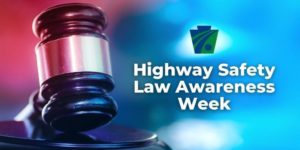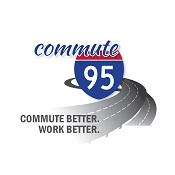
Pennsylvania Department of Transportation (PennDOT) and Pennsylvania State Police (PSP) came together recently to highlight driver safety laws and urge motorists to put safety first.
According to early estimates from the National Highway Traffic Safety Administration (NHTSA), national traffic fatalities in the first nine months of 2021 rose approximately 12 percent over 2020.
In Pennsylvania, 2021 preliminary data shows deaths on our roadways increased by as much as 10 percent, including increases in fatalities in speeding crashes, distracted driving crashes, crashes involving a 16- or 17-year-old driver, as well as unrestrained fatalities.
While fatalities in crashes involving impaired driving have remained relatively flat in recent years, data shows fatalities in crashes involving drinking drivers have been declining, while fatalities in crashes involving drugged drivers have been increasing.
In 2020, it is estimated that 94 percent of unbelted occupants, or 305 people, who were killed in crashes while traveling in passenger vehicles, including cars, small trucks, vans, and SUVs, could have survived if they had been buckled up.
Pennsylvania’s Highway Safety Law Awareness Week is February 20-26 and this year features safety laws that impact crashes and fatalities each year.
- Distracted Driving: Pennsylvania’s Texting-While-Driving Ban prohibits as a primary offense any driver from using an Interactive Wireless Communication Device (IWCD) to send, read or write a text-based communication while his or her vehicle is in motion.
- Seatbelts: Pennsylvania law requires any occupant younger than 18 to buckle up when riding in a vehicle, as well as drivers and front-seat passengers. Children under the age of two must be secured in a rear-facing car seat, and children under the age of four must be restrained in an approved child safety seat. Children must ride in a booster seat until their eighth birthday.
- Impaired Driving: Pennsylvania law prohibits individuals from driving while impaired by alcohol and/or drugs. Penalties for driving while impaired depend on the individual’s level of impairment and prior offenses and can include up to $10,000 in fines, up to five years in prison, up to 18 months license suspension, one year of ignition interlock, and more. For more information on the penalties, check out Pennsylvania’s DUI Law.
- Speeding: Pennsylvania law on speed restrictions requires motorists to drive at reasonable and prudent speeds for the current conditions. Drivers must drive at a safe and appropriate speed when approaching and crossing intersections, railroad grade crossings, when approaching and going around a curve, while approaching a hill crest, when traveling upon any narrow or winding roadway, and when special hazards exist with respect to pedestrians, other traffic, or weather or highway conditions. This law is sometimes called the “assured clear distance” rule because it requires motorists to operate at a speed at which they can stop within an “assured clear distance.” Drivers may be ticketed for rear-ending another vehicle because they violated this law by not stopping within the following distance they allowed.
- Pennsylvania’s Young Driver Law: Pennsylvania licenses young drivers through a three-stage program, reflecting the driver’s gradual progression in skill, experience, and decision-making ability. The law has proven effective in reducing crashes and fatalities for 16- and 17-year-olds.





